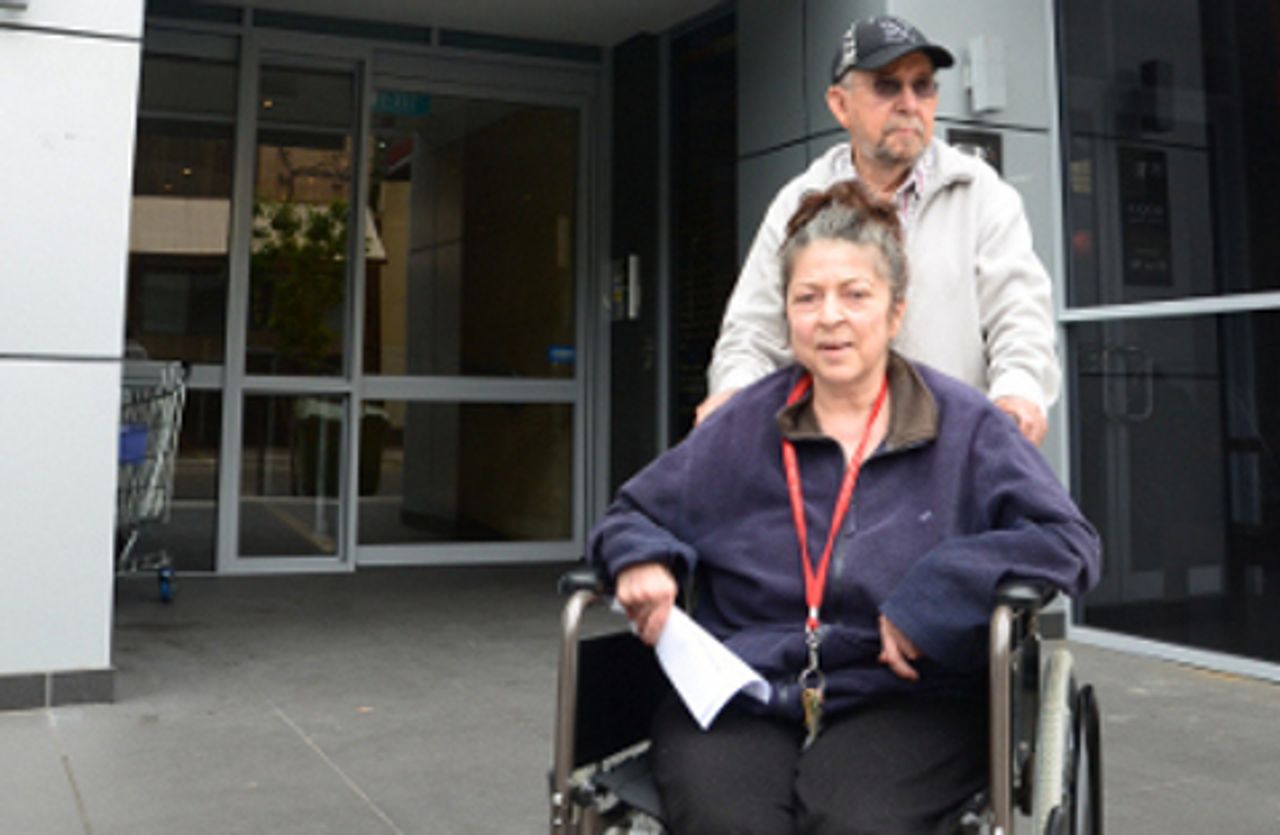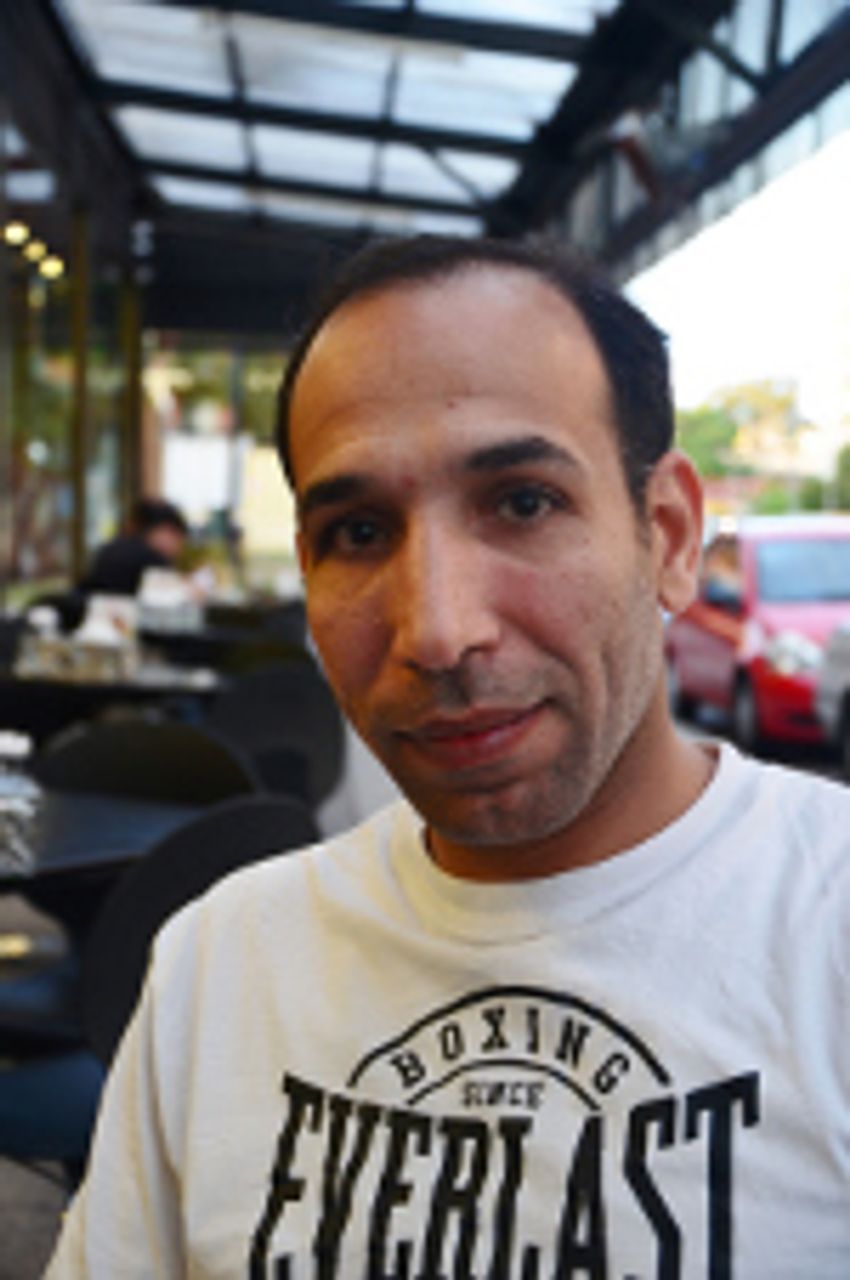Hundreds of residents of Euro Terraces Building B in Bankstown, the scene of the September 6 fire that led to the death of Chinese student Pingkang “Connie” Zhang and seriously injured Yinuo “Ginger” Jiang, have reoccupied their units in the 10-storey apartment block over the past two weeks.
Residents, who were made homeless for more than two months, were permitted to return after the Bankstown City Council inspected the building in late October and declared that “sufficient work, including the removal of the roof over the atrium” had been completed. Despite this assurance, safety problems continue at the building.
On Monday night, terrified residents had to evacuate the block after fire alarms were activated. Local fire services responded but it was another false alarm—like the many that had occurred before the September 6 disaster. There has been no comment from the city council or strata management about Monday’s incident.
It is now three months since the disaster, but there has been no official statement from any government authority—the council, the state government or NSW Fire and Rescue—about what caused the fire and why it engulfed the fifth floor apartment so rapidly.
Numerous questions remain unanswered. Residents have been given no details of all the safety issues that need to be rectified. It is not clear whether the costs of repair or construction modifications will be covered by strata insurance or have to borne by individual owners, who are mainly recently arrived immigrant families from the Middle East, China and Vietnam.
Euro Terrace residents who spoke to the World Socialist Web Site this week voiced their concerns about building safety and the disaster’s impact on their lives.
 Sue Taskin and her father
Sue Taskin and her fatherSue Taskin is a disability pensioner and shares a rental apartment with her brother. She was recovering from an ankle surgery when the fire occurred on September 6. “The fire was terrifying, smoke was everywhere and I had to hobble down the fire escape stairs, three flights,” she said.
“For the first three nights we had to stay at my parent’s one-bedroom unit—the four of us had to share that place. I tried to sleep sitting up on a sofa.
“The department of housing finally put me in a temporary motel but that was for only 24 days. After that, they said they couldn’t do any more and so I had to pay for the rest of the time there. This meant that my pension all went to the motel and every day I had to travel from Chullora to Sefton for meals because there was no food at the motel.”
Taskin said she remained seriously concerned about fire safety in the building but could not afford to move out. Her fears were confirmed on Monday when the fire alarm went off.
“My parents have moved here to help me and we had to use the lift. I couldn’t go down the stairs. We were really scared. My mother was terrified and I thought she was going to have a heart attack,” she explained. “I’ve been living here two years and the alarm has been going off once a fortnight, on the average, during that time. So what has changed and how long will this go on?”
Asked if she had received any information about the building before returning, Taskin said: “I asked whether was there anything in writing stating that it was safe, and explaining what had happened, but we’ve been given no information. I still don’t know what caused the fire. I believe that this building is unsafe and that it can happen again.”
Jesse Casaol, his wife, and five children live on the fifth floor. He said the Bankstown council’s response to the disaster had been “a wakeup call” for all the residents.
“My wife had come out of surgery just two days before the fire and then had to be sent back to be treated for smoke inhalation,” Casaol said. “I called the council’s GM [general manager] and was put onto his PA [personal assistant], who told me he was busy. The PA was instructed to tell me that the council was not responsible.
“Its attitude has been: ‘Don’t call us, we didn’t know anything about problems with the building and we’re not responsible for what happened.’ But there’s an obvious contradiction because these are the same people now telling us that everything is all right and it’s safe for us to return.
“The whole thing has left a very bad taste in my mouth and it’s still not clear how the fire happened. Are we safe in this building and can we trust the council?
“This is supposed to be a civilised country but not one member of the council has contacted us and expressed their concern. They want us to vote for them but they do nothing—not even a coffee, tea or biscuit, let alone a phone call. Of course, they’ve sent out their bill for the rates, which includes the two months we were locked out of the building.”
 Ahmed Eldeeb
Ahmed EldeebAhmed Eldeeb, who rented an apartment on the seventh floor for about 18 months before the fire, has found new accommodation.
“My friend has asked me to move back but I don’t feel safe there anymore. Did the council or anyone else check those for safety? I don’t know and neither does anybody else. We haven’t been given any answers.
“All of us are suffering from stress problems caused by the fire. After the fire, I lived with friends for four days and then the housing department provided nine days’ emergency accommodation at a motel. They then sent me to church community accommodation for three days, but then I had to find my own accommodation. It has been very difficult.
“There are still many things that are wrong,” he continued. “They’ve removed the atrium roof, which might fix the smoke issue, but what about the fire problem? I don’t think that they’ve fixed that.
“The carpets are nylon, which is dangerous if they catch fire, and the kitchen is in the wrong place. If there’s a fire, it’s very difficult to get out of the apartments, and there are still no sprinklers. If the atrium roof was the only problem, why did they kick the residents out for more than two months?”
Emad Merhab was in Lebanon with his wife and four-year-old daughter when the fire occurred and expected to find out what caused the disaster when he returned to Australia.
“All I’ve heard is rumours,” he said. “We’ve been given no factual evidence from the people who know what happened—the police and fire brigade. How do we know that this sort of thing isn’t going to happen again? Why can’t they tell us these things?”
Merhab received no emergency welfare. Because he was renting and not covered by insurance, he had to pay $180 a night for motel accommodation.
“Somebody—the council, the government or the builders—should be responsible for the damage done here and what we went through. It’s like we’re living in a country that seems to have no laws. It’s disgusting. I don’t feel safe in this building but don’t have an alternative. It’s not easy getting another place and it costs money. Unless something is done then this situation will just be forgotten. Somebody has to take a stand and bring people together about this.”
